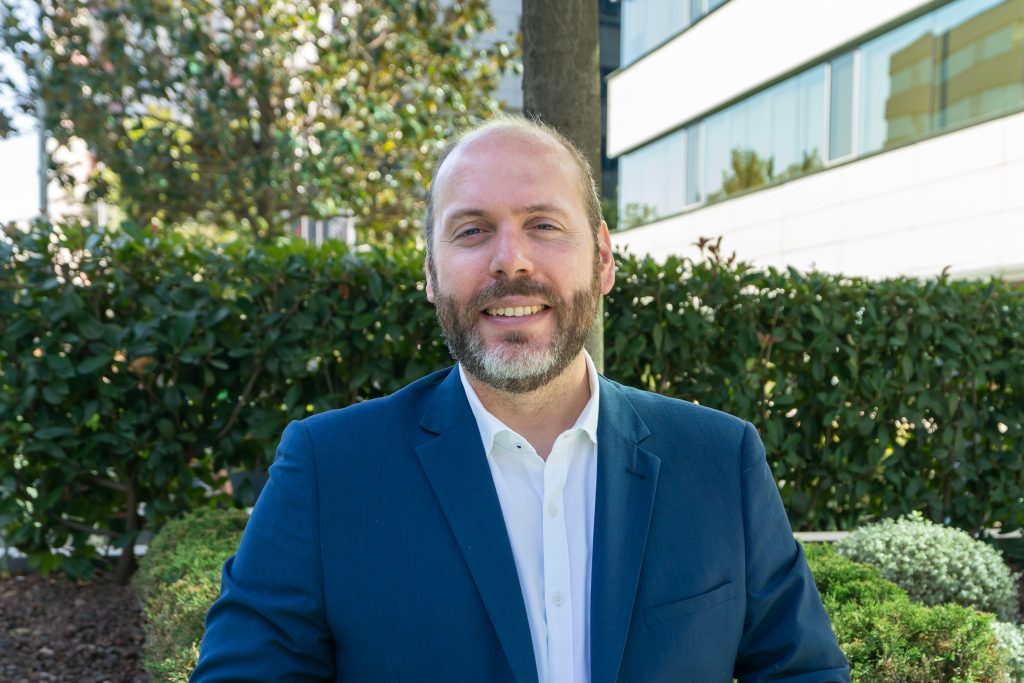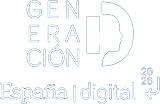03/03/2022
CRACKS of technology’ is a weekly series of interviews, through which we want to give voice to those IT professionals who are absolute geniuses of technology in Spain. We want to hear from them, to know and recognize the work they do in these companies; to know what they are passionate about and what advice they have for those who will come after them.
Talking about the long term in the telecommunications sector today seems contradictory, given the speed at which the world is changing. We do not know what challenges and changes the future will bring, but we do know that we have the opportunity and the challenge of improving from the present to ensure sustainability.
Jorge Caja joined Tower almost five years ago with a mission: to transform the company from today’s business model to the business of the future. A customer-focused, high-performance company capable of adapting to changes in its environment. Under this prism, it is leading an ambitious process of diversification and growth to establish itself as the leading partner for services related to the management of telecommunications infrastructure in Spain, 5G and Smart Cities.
Do not miss this interview, because it also launches a message that leaves an open debate: the technological revolution is advancing at a rapid pace and as a society we are called to adapt to the changes that its correct adoption implies. Will we know how to manage the social risks of digitalization?

Jorge Caja, CEO of Tower.
Q.- What differentiates Tower from other companies specialized in telecommunications engineering?
R.- Tower was born 26 years ago in response to a very clear need of the vendors and telecommunications operators: to manage the entire procedure for acquiring the sites on which they wanted to install their sites, whether they were residential buildings, homeowners’ associations, a water reservoir, protected areas or any other location. There is a whole world of paperwork, permits and expertise in negotiating space that needs to be known.
Even today, we continue to offer this service and are leaders in this market. We are currently building adjacent services that allow us to offer both end-to-end solutions and more specific services related to telecom infrastructure delivery management, 5G and Smart Cities.
Q.- How has Tower’s traditional business evolved since its origin in 1996?
A.- During our years of experience, we have been expanding the range of services we offer to our clients. We started with the legalization of the sites that we had previously negotiated. We have a method that is also valid for sharing companies. [de redes] and that is why this is one of our star departments at present.
We then formed an engineering department to complement the previous areas, starting with legalization and infrastructure engineering, and then moving on to upgrades, 5G design, radio design for any other network standard, transmission and even radioelectric measurements.
Subsequently, we began to offer maintenance and operation of these infrastructures, providing support for inventories, work orders and, in general, for the large databases of the various operators and vendors. In recent years we have developed technology that allows us to automate many of these processes to obtain efficient and sustainable results for our clients.
Q.- Has this diversification been completed?
A.- Not at all, in fact we continue to expand, adapting to the needs of each project and focusing on the objectives of each company that hires us. Within the management of telecommunications infrastructure delivery we still have a long way to go. We are a partner benchmark for the “torreras” that outsource these tasks, as well as for other companies in the sector. Telco who value our versatility and the multidisciplinary work we do. At Tower we have lawyers, engineers, administrators, data processing specialists, cost control and IT developers that allow an integral development of each solution we offer. In our company we are committed to a diverse human talent, since it offers a holistic vision of the sector and that makes our relationships with our clients fruitful and long-lasting.
Also, a couple of years ago we decided to turn around and expand our activity in the public sector, because we realized that the Administration was managing large databases that, however, were not linked to those of the Telco sector. We have set up a technical project office here to bid for tenders, with very good results.

Q.- From the purchase of rooftops to install antennas to the management of databases, passing through…
A.- For renewable energies! Taking into account the large volumes of data that are processed and the high energy consumption of all this back-office infrastructure, many possibilities open up in the world of photovoltaic energy self-consumption.
Another great opportunity for our company today is in IT development, and we are working on it to improve the agility and user experience of databases managed by operators or administrations, concentrating the different programming languages so that these tools and applications are lighter, more efficient and operational.
In the end, in a modernization project you have to think about how your own business -or administration- is going to be transformed in the coming years, what network design fits into that vision, how we can make data management as efficient as possible, and how to provide that infrastructure with energy efficiency. For clients such as local entities and the general state administration, we help them design their long-term roadmaps [4 años] and, based on these, we propose which technologies and services they would need.
Q.- In the roadmap of both operators and administrations, we will surely find plans to support use cases of the Internet of Things, such as Smart Cities?
A.- In fact, this is a field in which we have already started to work. The city councils, starting with the remote management of street lights and street furniture, are generating their own network. We help them to make this network scalable and sustainable, because data processing will grow a lot and very quickly in the coming years, while we work with our traditional telco customers, who are the technology providers.
We will come to connect and leverage the synergies and complementary needs between digital technologies, industry and energy efficiency, in the short to medium term. The real and operational interconnection of these sectors still has some way to go and we know that we will be there implementing solutions, as we have always done.
Programming languages and communication protocols for city sensorization are not yet standardized. That explains, at least partially, why the Smart Cities revolution has not yet exploded. But it will, and we are prepared to advise administrations on how to shape it.
“The Smart Cities revolution will explode, and we are ready to advise administrations on how to shape it.”
Q.- Would you dare to estimate how long it will take for Smart Cities to take off?
A.- Clearly, the European funds for the post-Covid recovery will accelerate demand which, in turn, will drive the search for answers to these technological challenges. The Next Generation funds will be administered in the next 3 or 4 years, between now and 2026. So that is the scenario in which I believe we will see real ‘smart’ cities emerge.
I am more concerned about another variable, which is not being sufficiently taken into account in this Fourth Industrial Revolution: the humanistic one. The digital transformation has immense sociological implications, which must be analyzed and addressed from education and from the technology industry itself. Responses to technical challenges should be accompanied by responses to the human challenges posed by those same technologies. However, in my opinion, that is not happening.
There is no point in talking about digitalization or robotization if we are not capable of having a society that is able to manage this information correctly.
Q.- Where should we start looking for those answers?
A.- We can start by incorporating many more people with humanistic profiles in the digital transformation. It cannot be that this change is being led only by engineers – and I am an engineer – because we will be leaving many things by the wayside. That is why I believe that many more historians, anthropologists, psychologists, sociologists, communication professionals, among others, must participate in the technological evolution.
We need technology companies to be more aware of this need and, also, we need humanistic profiles to understand and care about playing a relevant role in this change of era.
Based on this premise, we are proud to say that at Tower we have 50% non-technologists on our staff. I sincerely believe that this mix gives us a differential value and has allowed us to grow rapidly in a sector that always demands to be at the forefront. The same pluralistic approach could be applied at the level of society as a whole, if we manage to involve all economic agents.
“The ‘mix’ between technologist and humanist profiles at Tower gives us a differential value in a sector that demands to be always at the forefront”.
Q.- Besides promoting multidisciplinarity, what other organizational measures have you implemented for mutual enrichment between technologists and non-technologists?
A.- Most of these measures are aimed at a paradigm shift from the perspective of knowledge and expertise; a change of mentality to work collaboratively, implement new technologies and innovate in methodologies. Always facilitating human contact between teams. For example, we require the camera to be connected during videoconference meetings, and we organize face-to-face events and other commitments so that people can connect and communicate beyond the screen. We start from the premise that everything digital is essentially human.
These types of connections are very important for Tower, because they give us a more complete view of the market and the opportunities that lie ahead. They are important for employees, because they help them to feel part of this great project, to grow personally and professionally, and to enjoy their work time more. And, although on a very small scale, they are also important for society as a whole, because collaboration will be crucial to solving the major social and environmental challenges posed by digitization.










